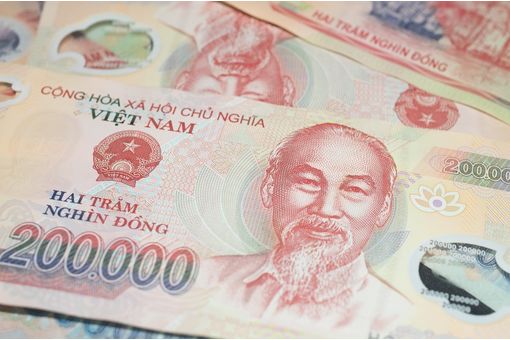Interviews
Crisis in spinning industry - 1/3rd production cutback from May 24
18 May '11
5 min read
(vi) Permit conversion of a portion of CC limits into term loans to fill up the gap in the CC limits caused due to sudden fall in the prices of unsold yarn and cotton and such loan should be given five years repayment period with normal interest rate and it should not affect the credit rating of such units resulting in proliferation of Non Performing Assets (NPAs).
(vii) Address the pollution issues prevailing in various dyeing clusters particularly Tirupur and other places in Tamil Nadu so that the domestic garment industry works in full capacity which in turn boost yarn sales.
Mr. Shishir Jaipuria observed that the present predicament of the textile industry is due to a combination of factors. The Government abruptly imposed a restriction on export of cotton yarn to 720 million kgs for the year 2010-11 based on an unsubstantiated complaint made by cotton yarn users of high prices and low availability.
Consequently, there was no export of cotton yarn for over two and a half months from 15th January, 2011 to 31st March 2011. This led to a huge stock of unsold cotton yarn with the mills as on 31st March 2011, considerably higher than the figures released by the Textile Commissioner in the last meeting of the Cotton Yarn Advisory Board (CYAB).
Post withdrawal of restrictions on export of cotton yarn from 1st April 2011, exports have been very tardy since non-shipment of Indian cotton yarn for over two months have diverted several regular importers of the Indian cotton yarn to other sources. Cotton yarn exporters are finding it extremely difficult to win back these buyers now. On the top of it, immediately after the withdrawal of restrictions, the mills, which have accumulated inventories have off loaded them at a reduced price internationally, which has led to price decline. Even that did not help boosting the demand on account of the steep decline in demand for cotton fabrics internationally.
“Our understanding is that exports of cotton yarn during the last five weeks have amounted to less than 50 million kgs. as against 70-75 million kgs. per month, which was being exported last year before the restriction was imposed,” says Mr. Jaipuria.
Mentioning that the textile mills are holding a stock of around 500 million kgs, Mr. Jaipuria observed that this has completely eaten into their working capital. Faced with cash losses and negligible working capital, mills are finding it impossible to buy cotton and this has resulted in a decline in cotton prices in the market. However, he added that decline in cotton prices is no indication of adequate availability.
The press conference was addressed by senior functionaries of CITI, Southern India Mills Association (SIMA), North India Textile Mill Association, Texprocil, Indian Spinners Association (ISA), Tamil Nadu Spinning Mills Association, Andhra Pradesh Spinning Mills Association, South India Spinners Association, Annur Spinning Mills Association, Madurai Spinners Association and Karur Textile Forum.
(vii) Address the pollution issues prevailing in various dyeing clusters particularly Tirupur and other places in Tamil Nadu so that the domestic garment industry works in full capacity which in turn boost yarn sales.
Mr. Shishir Jaipuria observed that the present predicament of the textile industry is due to a combination of factors. The Government abruptly imposed a restriction on export of cotton yarn to 720 million kgs for the year 2010-11 based on an unsubstantiated complaint made by cotton yarn users of high prices and low availability.
Consequently, there was no export of cotton yarn for over two and a half months from 15th January, 2011 to 31st March 2011. This led to a huge stock of unsold cotton yarn with the mills as on 31st March 2011, considerably higher than the figures released by the Textile Commissioner in the last meeting of the Cotton Yarn Advisory Board (CYAB).
Post withdrawal of restrictions on export of cotton yarn from 1st April 2011, exports have been very tardy since non-shipment of Indian cotton yarn for over two months have diverted several regular importers of the Indian cotton yarn to other sources. Cotton yarn exporters are finding it extremely difficult to win back these buyers now. On the top of it, immediately after the withdrawal of restrictions, the mills, which have accumulated inventories have off loaded them at a reduced price internationally, which has led to price decline. Even that did not help boosting the demand on account of the steep decline in demand for cotton fabrics internationally.
“Our understanding is that exports of cotton yarn during the last five weeks have amounted to less than 50 million kgs. as against 70-75 million kgs. per month, which was being exported last year before the restriction was imposed,” says Mr. Jaipuria.
Mentioning that the textile mills are holding a stock of around 500 million kgs, Mr. Jaipuria observed that this has completely eaten into their working capital. Faced with cash losses and negligible working capital, mills are finding it impossible to buy cotton and this has resulted in a decline in cotton prices in the market. However, he added that decline in cotton prices is no indication of adequate availability.
The press conference was addressed by senior functionaries of CITI, Southern India Mills Association (SIMA), North India Textile Mill Association, Texprocil, Indian Spinners Association (ISA), Tamil Nadu Spinning Mills Association, Andhra Pradesh Spinning Mills Association, South India Spinners Association, Annur Spinning Mills Association, Madurai Spinners Association and Karur Textile Forum.
Confederation of Indian Textile Industry (CITI)
Popular News
































-Ltd..jpg?tr=w-120,h-60,c-at_max,cm-pad_resize,bg-ffffff)





.jpg?tr=w-120,h-60,c-at_max,cm-pad_resize,bg-ffffff)
.jpg?tr=w-120,h-60,c-at_max,cm-pad_resize,bg-ffffff)






